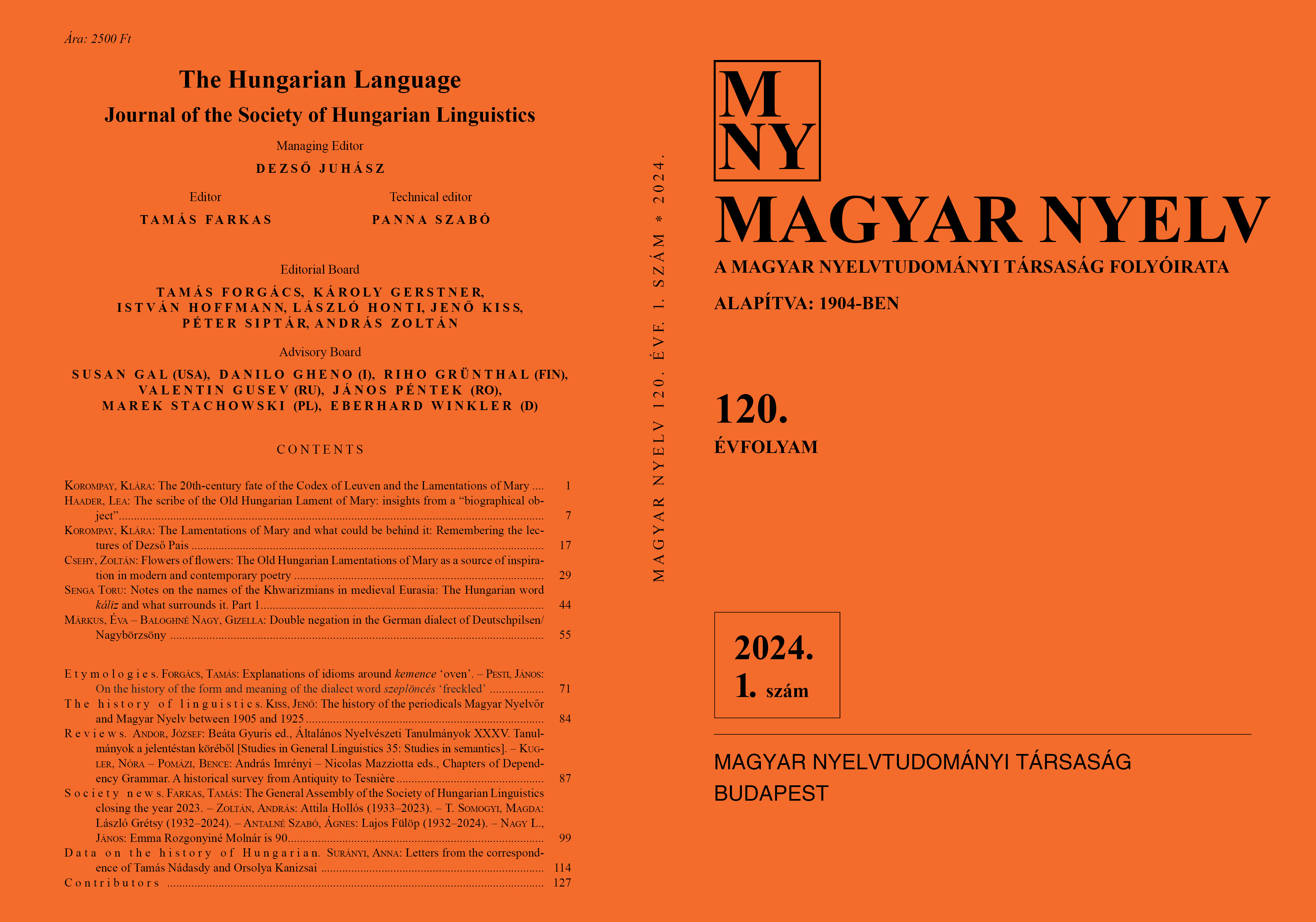The 20th-century fate of the Codex of Leuven and the Lamentations of Mary
DOI:
https://doi.org/10.18349/MagyarNyelv.2024.1.1Keywords:
Codex of Leuven, Lamentations of Mary, Géza Bárczi, library of the University of LeuvenAbstract
The first Hungarian poem was preserved in the 13th-century Codex of Leuven. The history of this codex is tightly connected to the 20th-century history of the library of the University of Leuven. The library was set on fire by the German army in the summer of 1914. A set of books was given as a war compensation from Germany to Belgium in 1922; the Lamentations of Mary was discovered while these books was being sorted out. The whole collection of the library was perished in 1940, but the Codex of Leuven survived the fire in a safe as it was found out by Géza Bárczi in 1947. The codex was brought home as a result of an exchange contract in 1982, and since then has been kept in the National Széchényi Library.
Downloads
Published
Issue
Section
License
Copyright (c) 2024 Klára Korompay

This work is licensed under a Creative Commons Attribution-NonCommercial-NoDerivatives 4.0 International License.
Magyar Nyelv is a Diamond Open Access periodical. Documents can be freely downloaded and duplicated in an electronic format, and can be used unchanged and with due reference to the original source. Such use must not serve commercial purposes. In the case of any form of dissemination and use, Hungarian Copyright Act LXXVI/1999 and related laws are to be observed. The electronic version of the journal is subject to the regulations of CC BY-NC-ND (Creative Commons – Attribution-NonCommercial-NoDerivatives).
The journal permits its authors, at no cost and without any temporal limitation, to make pre-print copies of their manuscripts publicly available via email or in their own homepage or that of their institution, or in either closed or free-for-all repositories of their institutions/universities, or other non-profit websites, in the form accepted by the journal editor for publication and even containing amendments on the basis of reviewers’ comments. When the authors publicize their papers in this manner, they have to warn their readers that the manuscript at hand is not the final published version of the work. Once the paper has been published in a printed or online form, the authors are allowed (and advised) to use that (post-print) version for the above purposes. In that case, they have to indicate the exact location and other data of the journal publication. The authors retain the copyright of their papers; however, in the case of an occasional secondary publication, the bibliographical data of the first publication have to be included.



